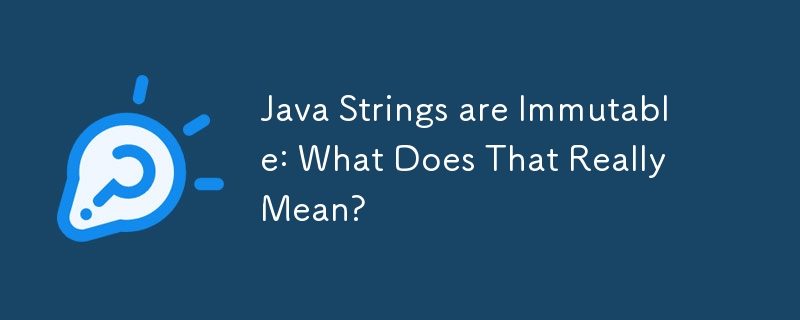

Understanding the Concept
Contrary to common belief, the code snippet you provided does not demonstrate that Strings are mutable. Strings in Java are immutable, meaning their contents cannot be modified. So, how did the variable 'a' change its value from "a" to "ty"?
Reassigning References
In reality, the reference variable 'a' is being reassigned to a new String object with a different value. The original object with the value "a" is not altered.
How Strings are Modified
When a String object is supposedly "modified," such as adding a suffix using the 'concat' method, a new String object is actually created with the modified value. This new object is then assigned to the same reference variable, replacing the original object.
Role of the String Constant Pool
To optimize memory usage, the Java Virtual Machine (JVM) uses a special area called the String constant pool. This pool stores references to String objects created from literals or through the 'new' keyword. If a matching String already exists in the pool, a reference to the existing object is used instead of creating a new one.
Immutability and String Constant Pool
Immutability plays a crucial role in the effective functioning of the String constant pool. Because multiple references can point to the same String object, allowing one reference to modify the object could create inconsistencies. Therefore, the imutability of Strings ensures that all references point to the same value, maintaining consistency.
Finality of the String Class
To prevent the behavior of String methods from being overridden, the String class is marked as 'final.' This prevents subclasses from altering the default behavior of the String object, preserving its immutable nature.
The above is the detailed content of Java Strings are Immutable: What Does That Really Mean?. For more information, please follow other related articles on the PHP Chinese website!




